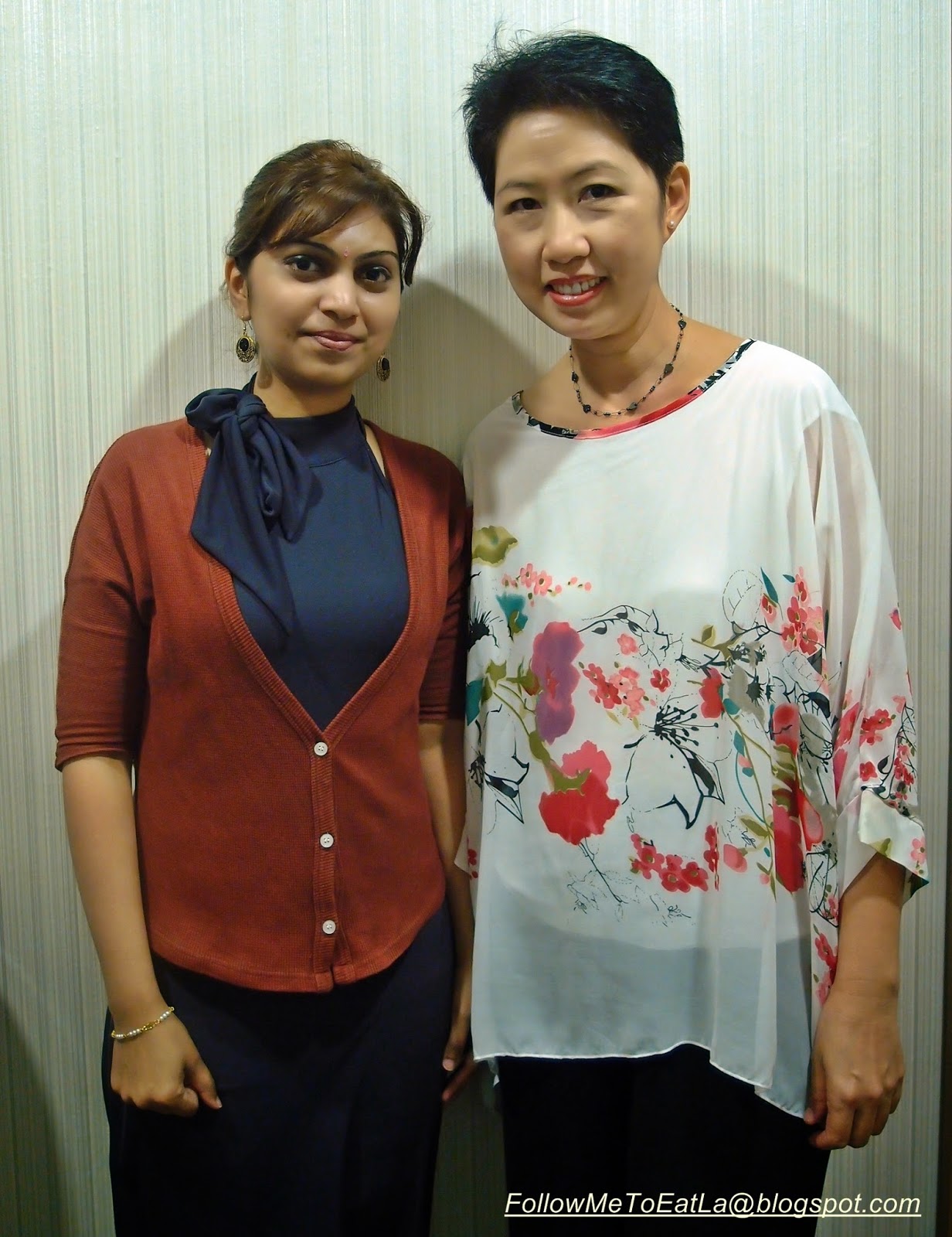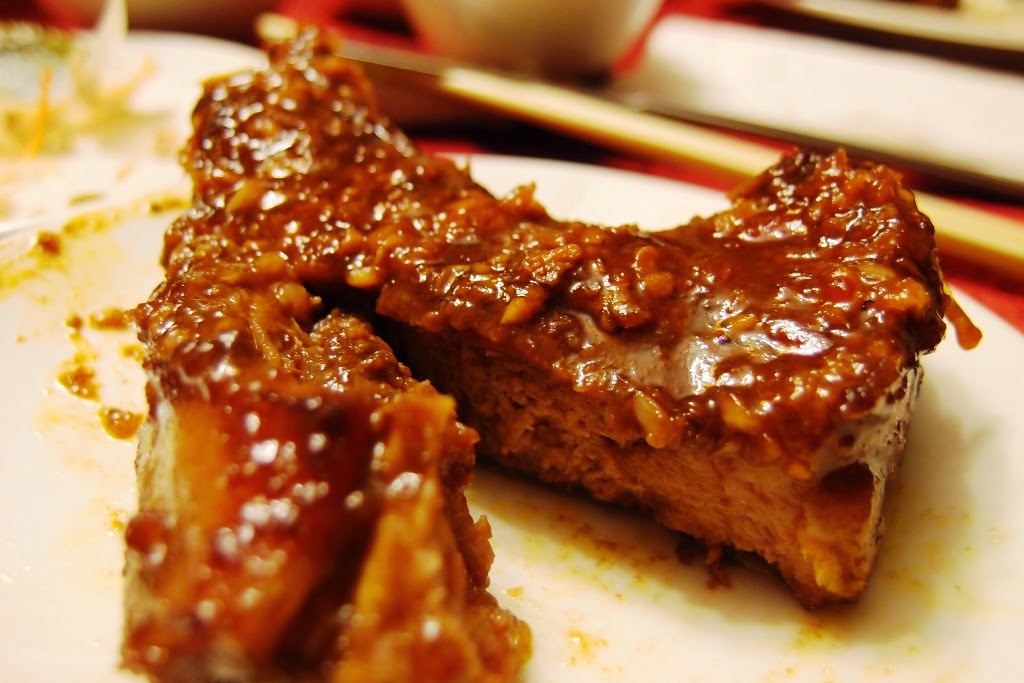
Hokkaido Ramen Santouka, a Japanese-based noodle chain is a famous ramen specialist from the land of the rising sun. The history of the shop goes back to 1988, when Santouka founder, Hitoshi Hatanaka and his family had an unpleasant meal experience eating at a ramen shop. Unsatisfied with the taste of the ramen, Hatanaka declared that he would making his very own homemade ramen for his family. This mark the beginning of the now-legendary flavour of Ramen Santouka.
His business started off as a family-run ramen shop in March 1988, in Asahikawa, the 2nd largest city in Hokkaido. Started off as a modest shop with only 9 seats and only 1 item on the menu - Shio Ramen (salt flavour) initially. Nowadays, there are many Hokkaido Ramen Santouka's outlets located throughout Japan and in international cities which strictly maintain the exact same cooking standards as the other Ramen Santouka restaurants around the world.
With over 53 existing outlets of the chains in 10 countries around the world, Hokkaido Ramen Santouka has now reached the shores of Malaysia and can be found in Tokyo Street, Pavilion. This is the happening place for everything Japanese, you can find authentic Japanese food, beverages, snack, handbags and knick knacks stores at Tokyo Street.
Irasshaimase! The workers honorifically address you walk in. It is a guarantee that you will be transported into a little Japan, purely reflecting a homely Japanese mood. Adorning the walls are framed calligraphy paintings. The simple yet elegant Zen style circular ceiling lighting provide the rustic charm, pleasant and calming ambiance for you, family and friends to dine in.
Bountiful meal awaits you as you enter the restaurant. Displays of the mouthwatering ramen dishes set or individual bowls are lay out for you to choose and see together with sides too.
The sight of a distinctively traditional-designed Japaneses restaurant as you step in, cozy and vibrant ambiance with a touch of Zen. The Japanese decor restaurant sets the stage for authentic Japanese meals with its hardwood furniture, wood ceiling panels, stone tiled walls and the white Noren, a traditional fabric divider with Japanese calligraphy, greets customers.
The open kitchen, which is positioned at the rear side of the restaurant gives you a full view of the food preparation.
There are 4 extraordinary varieties of ramen to choose from at Hokkaido Ramen Santouka. There are namely 4 types of pork ramen with different flavoured broth but all pork based; Shio Ramen (salt flavour), Shoyu Ramen (soya sauce flavour), Miso Ramen (soybean paste flavour), Kara Miso Ramen (spicy soybean paste flavour).
To prepare the mild, pearl-coloured Tonkotsu soup, pork bones are simmered for about 20 hours before adding vegetables, dried fish, kelp and other special ingredients. Another important point is they purposely maintain the soup at its optimal temperature to best be enjoyed by everyone, be the children or the elderly.
To kick start the Santouka experience, I opt for a hot cup of green tea as it's recommended as a neat and neat neutraliser. We were served with the 4 varieties of ramen at one go, but I shall review them in the order of the BEST to the LEAST favourite based on my personal preference and taste.
To prepare the mild, pearl-coloured Tonkotsu soup, pork bones are simmered for about 20 hours before adding vegetables, dried fish, kelp and other special ingredients. Another important point is they purposely maintain the soup at its optimal temperature to best be enjoyed by everyone, be the children or the elderly.
To kick start the Santouka experience, I opt for a hot cup of green tea as it's recommended as a neat and neat neutraliser. We were served with the 4 varieties of ramen at one go, but I shall review them in the order of the BEST to the LEAST favourite based on my personal preference and taste.
Spicy Shio Ramen (salt flavour)
Top in my list is the new Spicy Shio Ramen which has the toppings served separately. This dish comes with a combination of premium toroniko char-shu (pork cheek), menma (fermented bamboo shoots), naruto (fishcake), kikurage (black fungus), green onions and komi-tamago (flavoured boiled egg).
The curly, chewy ramen really goes well with flavourful, milky and creamy soup comes with a very light hint of spiciness. The melt-in-your-mouth pork cheek tasted good when eaten after dipping into the soup. The broth actually brings out the delicate taste of meat.
Appetising combination of condiments to eat with the Spicy Shio Ramen consists of premium toroniko char-shu (pork cheek), menma (bamboo shoots), naruto (cure fish surimi or fish cake), kikurage (black fungus), negi (green onions) and komi-tamago (flavoured boiled egg).
Shoyu Ramen (soya sauce flavour)
The next ramen ranking 2nd best is the Shoyu Ramen. The broth is made from a mixture of pork broth and soy sauce. It came with a tint of milky scent of tonkotsu broth, mildly thick, and very appeasing to taste. The ramen was medium curly and it was amazing throughout my meal it remained springy and not at all soggy, despite me taking sometime to take pictures before savouring them.
It came served with generous portion of negi (green onions), menma (bamboo shoots), naruto (cure fish surimi or fish cake), 5 slices of premium toroniko char-shu (pork cheek) and a piece of dried seaweed.
Dried seaweed is used as a topping only for Shoyu Ramen to bring out its flavour. The char-shu is simmered in soy sauce, so its flavour will stand out in the soup too. The dish was very appetising, the char-shu and negi gave up lovely flavours and contrasting textures with every mouthful.

It came served with generous portion of negi (green onions), menma (bamboo shoots), naruto (cure fish surimi or fish cake), 5 slices of premium toroniko char-shu (pork cheek) and a piece of dried seaweed.
Dried seaweed is used as a topping only for Shoyu Ramen to bring out its flavour. The char-shu is simmered in soy sauce, so its flavour will stand out in the soup too. The dish was very appetising, the char-shu and negi gave up lovely flavours and contrasting textures with every mouthful.

Miso ramen (soybean paste flavour)
Miso ramen soup is basically made from a mixture of pork broth (Tonkotsu soup) and a rich and hearty miso paste. The broth was not too salty at all, it was prefect with a mild taste of miso. The ingredients topping the ramen included a generous portion of negi (green onions), menma (bamboo shoots), naruto (cure fish surimi or fish cake), kikurage (black fungus) and 5 slices of premium toroniko char-shu (pork cheek).
Kara Miso Ramen (spicy soybean paste flavour)
The last but not least in my list is the Kara Miso Ramen (spicy soybean paste flavour). It is literally a bowl of miso ramen, mildly spicy than the original one. Definitely cannot compare to our M'sian curry laksa, if you are looking for the extra kick or very hot or spicy flavour. I expected something more spicier so this came off as just average for me only.
Tori-Karaage (Fried Chicken)
We were served with 3 starters to sample that day, but this one gets my double thumbs up and was my favourite without a doubt. The Tori-Karaage which simply means deep-fried marinated chicken should not be mistaken as another typical fast food but as an excellent starter. These golden brown crispy chicken pieces are served hot on a chrome cooling rack, complemented with some red lettuce and a slice of lemon to give a sourish kick. Flavoursome and well marinated, the meat of the chicken was juicy while its skin was crispy. It was addictive and I can't help going a second piece that day.
Aburi Tokusen Toroniku ( Roasted Premium Pork Cheek)
Another side dish of Santouka's was Aburi Tokusen Toroniku. Roasted premium pork cheek served atop a candle-heated mesh which looks unique and picture pretty. Visual presentation of the pork slices on mini stove does enhance its aesthetic appeal. This version of the pork cheek was soft and tender but a little dry and not as moist as the earlier one I ate with the ramen.
Pork Gyoza ( Pork Dumpling)
Pork Gyoza is a crescent-shaped dumpling filled with minced pork stuffing and steamed, boiled or fried. This Japanese steamed-and-fried dumpling is equivalent to the Chinese jiaozi or if fried, pot sticker. Too bad, I didn't have a chance to sample these although they do look appetising, probably I was too busy savouring the ramen that time. Hahaha .... :-)
Green Tea Ice Cream with Azuki Bean
Next to the starter and main course, desserts at Hokkaido Ramen Santouka are ordinary and unpretentious. What you get is mainly ice cream in matcha (green tea), and black sesame flavours.
Green tea ice cream paired with red bean paste (azuki bean) is truly a classic Japanese dessert. Although I'm not a big fan of ice cream, but I find it quite palatable. The slight bitterness of green tea complements really well with the sweetness and texture of the red bean. They truly are a perfect match for each other.
Black Sesame Ice Cream
Next is the black sesame ice cream, which is an acquired taste for most people, turned out to be just average for my taste. Maybe my expectation was high as I may compared it to my favourite black sesame sweet soup ( chee ma woo tong shui). Nevertheless, it helped to cleanse the palate.
Hokkaido Ramen Santouka
Lot 6.24.03 Level 6
Tokyo Street Pavilion
168 Jalan Bukit Bintang
55100 Kuala Lumpur.
Phone: 03- 2143 8878
Facebook: RamenSantoukaMalaysia
Website : santouka.co.jp
Drop a 'LIKE' in my FB page for my latest review
www.facebook.com/FollowMeToEatLa

















































